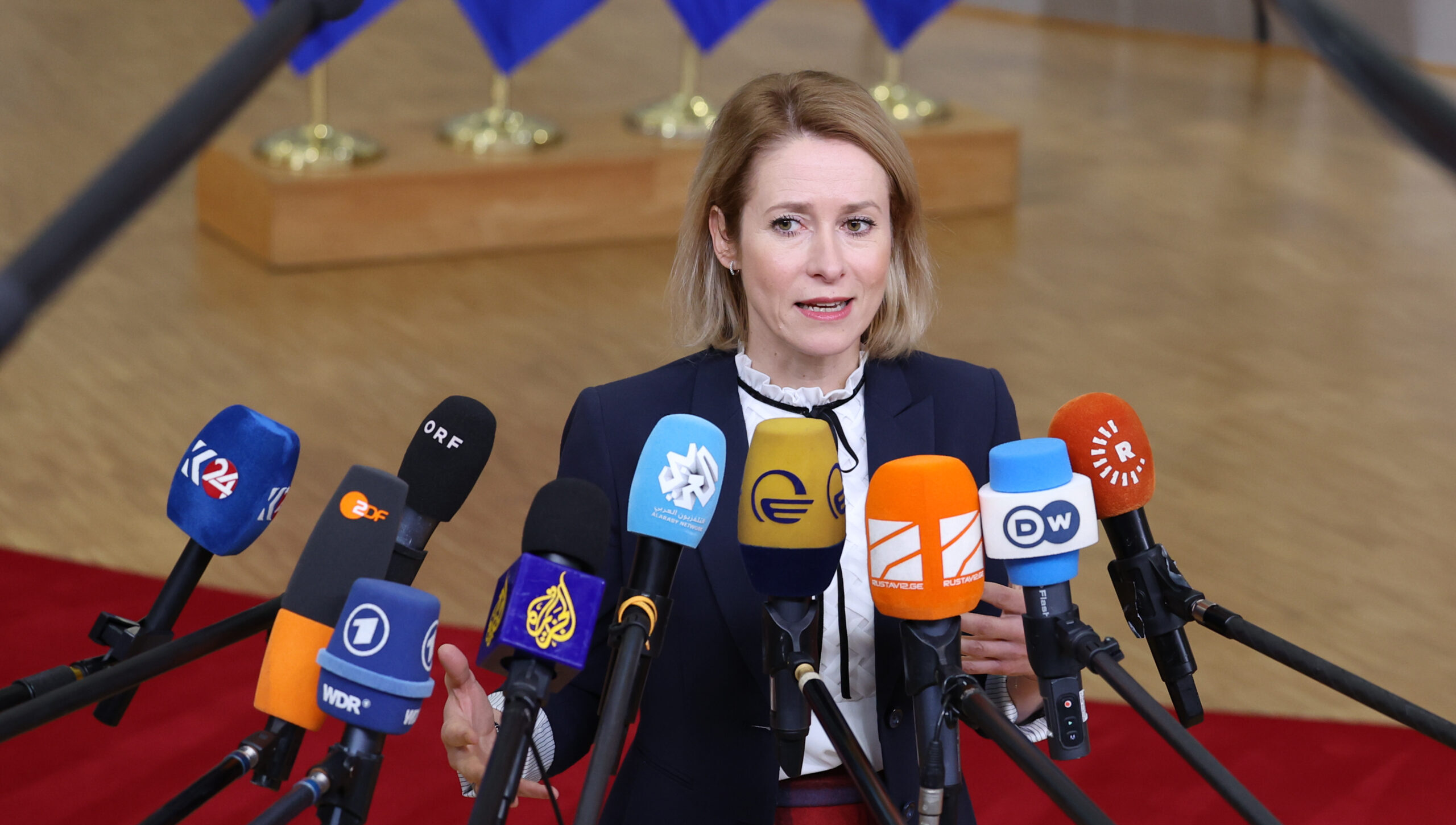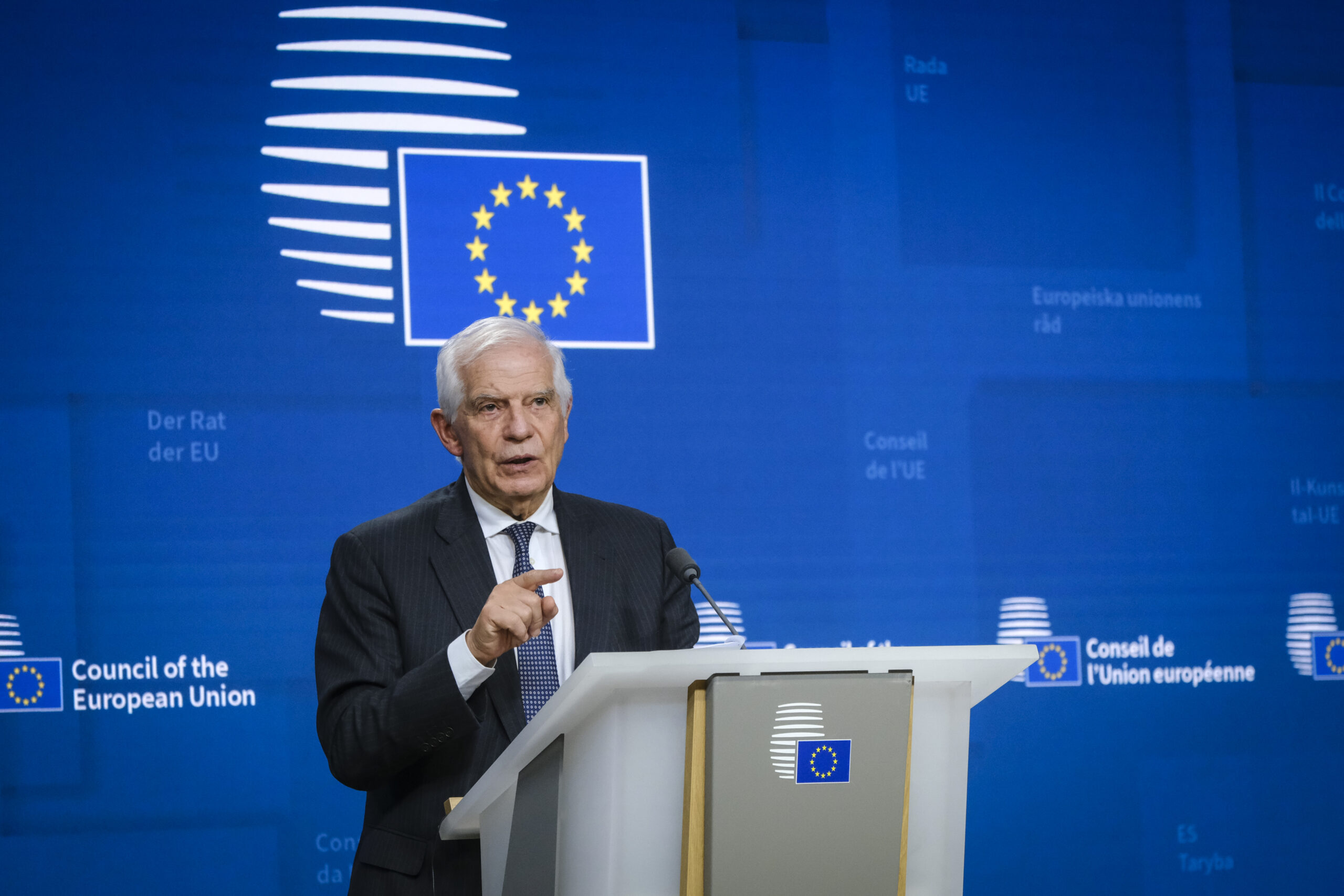Brussels – Since December 1, 2024, the date of the handover of the leadership of the European institutions, silence has fallen over the Israeli military’s repeated violations of international law in the war against Hamas in Gaza. It was a sharp break compared to the constancy with which the former president of the European Council, Charles Michel, and especially the former High Representative for Foreign Affairs, Josep Borrell, had tried to keep up diplomatic pressure on the Middle Eastern ally. Faced with new episodes of attacks on humanitarian garrisons and aid distribution, their successors, Antonio Costa and Kaja Kallas, have so far chosen silence, awaiting an EU-Israel Association Council scheduled for early in the new year.
To understand the radical change of attitude at the head of European diplomacy, it is helpful to compare the public statements of Borrell and Kallas in the last month of service of the Spanish socialist and the first of the Estonian liberal. At least a dozen messages condemning Israeli raids on civilians and supporting the institutions and bodies of international law were posted by Borrell on his own X account, not a single one by Kallas. Coupled with the refocused focus in early December on the fall of Bashar al-Assad’s regime in Syria, the humanitarian tragedy in Gaza has even been pushed off the top of the agenda at the December 16 EU Foreign Affairs Council, the first one chaired by Kallas.

Yet, there has certainly been no shortage of opportunities to call Tel Aviv to its obligations under international law. In the week between Christmas and New Year’s Day alone, Dec. 24–30, the UN Office for the Coordination of Humanitarian Affairs (OCHA) has reported the death of 203 Palestinian citizens and the injury of 574 others. On Dec. 27, the Israeli army took Kamal Adwan Hospital, the last major health facility in northern Gaza, out of service, arrested the director, and killed about 50 people, including five health workers, by shelling a building in front of the hospital. According to OCHA’s bulletin, five Palestinian journalists and workers were killed on Dec. 26 by an airstrike in front of Al Awda Hospital in An Nuseirat refugee camp in Deir al Balah.
Yesterday (Jan. 6), Tom Fletcher, the UN Under-Secretary-General for Humanitarian Affairs, launched a new despairing appeal over a situation that “faces growing obstacles.” He gave three examples: an Israeli attack that “seriously injured three people at a well-known food distribution point where a clearly marked World Food Program partner was operating,” the intensification of attacks “during the movement of a convoy of 74 aid trucks” and threats received by a UN mission in Jabalia from “hostile Israeli soldiers” who arrested four critical patients. Fletcher also reported a hijacking of fuel tankers by armed Palestinian gangs.
According to the undersecretary-general, this is “a dangerous pattern of sabotage and deliberate disruption,” in which “Israeli forces cannot or will not guarantee the safety of our convoys” and “statements by Israeli authorities defame our aid workers while the military attacks them.” No comment came from the leadership of European institutions—no message of support. A European Commission spokeswoman stated today (Jan. 7) that EU Crisis Management Commissioner Hadja Lahbib discussed the situation with Fletcher. And she reiterated the call for “all parties” to “respect international humanitarian law” and “not to attack humanitarian convoys.” Formulas and principles were also put in black and white in the conclusions of the last summit of EU heads of state and government last December 19.

Former High Representative of the Union for Common Foreign and Security Policy, Josep Borrell (photo: European Union)
The former head of EU diplomacy, Josep Borrell, has been criticized by several European capitals for the harshness with which he has exposed himself to Benjamin Netanyahu’s government, often not concerted with member countries. His latest proposal of suspending political dialogue with Israel as part of the Association Agreement that binds Brussels and Tel Aviv was returned to sender by the 27, judged as too radical a solution, which would only further hinder the path toward ending the conflict. Even the idea of convening an Association Council to discuss respect for human rights by Tel Aviv was shelved because the Netanyahu government refused to submit to a discussion devoted exclusively to that purpose.
On balance, Borrell’s strategy actually brought no concrete results. The war has not ceased, and Tel Aviv has never heeded the invitations from the EU High Representative. Indeed, the tension with Brussels has increased considerably. However, the constant reminders and the strenuous defence of international law have made it possible to keep the spotlight on what is happening in the Gaza hellhole for over a year. “History will judge us all. I did what I thought I had to do,” said the Spanish socialist at the end of his term.
Baltic Kallas, chosen as the head of the EU’s external action mainly to reiterate unconditional support for Ukraine against Russia, has changed her approach to the Middle East. With the foreign ministers of the 27, she again invited Israel to celebrate an Association Council, but without imposing the agenda exclusively on respect for human rights. In parallel, it convened a high-level conference with the Palestinian National Authority. Both are to be held in the early part of the new year, but—as confirmed today by a spokesman for the EU executive—there is no definite date yet. There is still no response from the Israeli government. For now, only silence has fallen over the crimes committed in the Palestinian enclave. “Buried under the rubble of Gaza,” to use Borrell’s words.
English version by the Translation Service of Withub










